(It is assented to 8 January 1999 and came into force on 11 January 1999)
PART 1 – INTRODUCTION
1. Definitions
In this Act, unless the contrary intention appears:
“conduct” except in relation to enquiries conducted by the Ombudsman into the conduct of a leader includes:
a) any action or inaction relating to a matter of administration; and
(b) any alleged action or inaction relating to a matter of administration;
“Court” means the Supreme Court;
“enquiry” includes an investigation under Part 5 of the Leadership Code [Cap. 240];
“government agency” means:
a) the Government; or
b) a local government council; or
c) a municipal council; or
d) a department, agency or instrumentality of the Government or a local government council or a municipal council; or
e) a ministerial department; or
f) a public authority; or
g) a state service; or
(h) a body that is wholly or mainly supported out of the public moneys of Vanuatu; or
h) a body if all, or the majority, of the members of the body’s controlling authority are appointed by the President, the Council of Ministers or a Minister; or
i) a company incorporated under the Companies Act [Cap. 191] in which the Government has an interest; or
j) an authority, body or service established by or under an Act, that the President, acting on, and in accordance with, the advice of the Council of Ministers, declares by notice in the Gazette to be a government agency for the purposes of this Act;
“government member” means any member of Parliament recognized by the Parliament as being generally committed to supporting the Government in the Parliament;
“leader” means:
a) the leaders referred to in Article 67 of the Constitution; or
(b) the persons declared to be leaders under section 5 of the Leadership Code [Cap. 240];
“Leader of the Opposition” means the member of Parliament (if any) recognized by the Parliament as being the principal spokesman on behalf of those members of the Parliament who are not generally committed to support the Government in the Parliament;
“local government council” means those bodies established by the Decentralization Act [Cap. 230] or any enactment that amends or replaces that Act;
“ministerial department” means a ministry of the Government or a department within a ministry;
“municipal council” means a council established by the Municipalities Act [Cap. 126];
“Ombudsman” means the Ombudsman established by Article 61 of the Constitution;
“opposition member” means any member of Parliament recognized by the Parliament as not being generally committed to supporting the Government in the Parliament;
“President” means the President of the Republic of Vanuatu;
“public authority” means any body, authority or instrumentality (corporate or unincorporate):
(a) established by or under an Act or administrative act for public or official purposes, other than a ministerial department; or
(b) in which the Government has any interest;
“public servant” means any person employed in or acting in any office in the public service;
“public service” means those persons employed in the ministries, departments, state appointed offices, agencies and instruments of the Government of Vanuatu as are designated by the Prime Minister pursuant to an enactment and, includes a director-general and director of a ministry or department of Government;
“report of the Ombudsman” or “Ombudsman’s report” means any written statement prepared by the Ombudsman after due enquiry into a justified complaint over which he or she has jurisdiction, and includes annexures or exhibits referred to in the statement;
“state service” includes:
a) the public service; and
b) the police force including the Vanuatu mobile force and prison services; and
c) any other service exercising purely state functions.
2. Application of laws
(1) Subject to Article 63 (4) of the Constitution, the provisions of this Act do not in any way limit or affect:
(a) the provisions of any other law under which any remedy or right of appeal is provided for any person; or
(b) any procedures providing for the enquiry into or investigation of any matter.
(2) The Ombudsman may exercise his or her powers despite any provision of any law to the effect that any administrative action is final or may not be appealed against.
PART 2 – QUALIFICATIONS AND CONDITIONS OF EMPLOYMENT, ETC.
3. Qualifications for appointment
(1) The Ombudsman is appointed under the Constitution, for 5 years, by the President after consultation with:
a) the Prime Minister; and
b) the Speaker of Parliament; and
c) the leaders of the political parties represented in Parliament; and
d) the chairman of the National Council of Chiefs; and
e) the chairmen of the local government councils; and
f) the chairmen of the Public Service Commission and the Judicial Service Commission.
(2) A person is disqualified for appointment as Ombudsman if he or she:
(a) is a member of Parliament, the National Council of Chiefs or a local government council; or
(b) holds any other public office; or
(c) exercises a position of responsibility within a political party.
(3) The Ombudsman must be a person who:
(a) has a knowledge, understanding and appreciation of the culture, traditions and values of Ni-Vanuatu people; and
(b) is of high integrity and competence; and
(c) has an appropriate academic qualification and suitable experience in the public or private sector; and
(d) is politically independent; and
(e) is capable of discharging his or her constitutional duties without fear or favour; and
(f) is of high standing in the eyes of the community.
4. Conditions of employment
(1) The Ombudsman’s salary and other conditions of employment are to be determined by the President. In doing so, the President is to act on, and in accordance with, the advice of the Council of Ministers given after receiving a report from the Public Service Commission.
(2) However, the Ombudsman’s salary and other conditions of employment are not to be less than or inferior to the salary and other conditions of employment of a Judge of the Supreme Court, without taking into account any conditions of employment personal to any Judge.
5. Ombudsman eligible for reappointment
The Ombudsman is eligible for reappointment after the expiration of his or her term of appointment.
6. Special conditions of employment of Ombudsman
(1) The Ombudsman must not during the term of his or her appointment:
a) except on leave granted by the Public Service Commission, or because of illness, absent himself or herself from duty for more than 21 consecutive days or more than 28 days in any 12 month period; or
b) acquire by way of gift or otherwise, or hold in any manner, any interest in any state property, or solicit, accept or receive any other benefit in addition to his or her terms and conditions of employment; or
c) produce reports containing inflammatory language not in keeping with the professionalism expected of the office; or
d) make allegations of criminal wrongdoing against any person without stating what criminal offence or offences may have been committed and supplying evidence to support the allegation.
(2) If the Ombudsman contravenes a provision of subsection (1), the Ombudsman is taken to be guilty of a breach of the Leadership Code [Cap. 240] and is liable to be punished in accordance with Part 6 of that Act.
7. Resignation of Ombudsman
The Ombudsman may resign by giving the President a signed resignation notice at least 3 months before the Ombudsman’s proposed resignation date.
8. Termination of appointment of Ombudsman
(1) The President may terminate the appointment of the Ombudsman after consultation with the parties identified in Article 61(1) of the Constitution if:
(a) the Ombudsman is declared bankrupt; or
(b) the Ombudsman is convicted and sentenced on a criminal charge (not being a road traffic offence); or
(c) the Ombudsman is incapacitated (see subsection (3)) from performing his or her duties because of ill health or an accident; or
(d) a finding of gross misconduct is made against the Ombudsman (see subsections (4) and (5)) such as to make it inappropriate for him or her to continue to carry out the duties of the office; or
(e) a conviction is made against the Ombudsman under the Leadership Code Act [Cap. 240] and he or she is dismissed from office.
However, the Ombudsman must be given a reasonable opportunity to answer any allegation made against him or her before the President decides whether or not to terminate his or her appointment.
(2) The appointment of the Ombudsman cannot be terminated in any other way.
(3) Two medical practitioners must certify the Ombudsman is incapacitated from performing his or her duties. One medical practitioner is to be nominated by the President and the other is to be nominated by the Ombudsman or his or her personal representative.
(4) A finding of gross misconduct against the Ombudsman must be made by at least 3 members of a tribunal appointed by the President and consisting of:
(a) the Chief Justice or a Judge of the Supreme Court appointed by the Chief Justice; and
(b) the Attorney General; and
(c) a person with legal qualifications who is nominated by the Prime Minister; and
(d) a person with legal qualifications who is nominated by the Leader of the Opposition.
(5) The Ombudsman must:
(a) be given a fair opportunity to make representations to the tribunal about all allegations against him or her (the detail of which must have previously been supplied to him or her in writing); and
(b) be legally represented (if he or she so desires).
(6) A person who is the Ombudsman ceases to be the Ombudsman if circumstances arise that would disqualify him or her for appointment as the Ombudsman.
9. Acting Ombudsman
(1) The President may, in accordance with the procedures under Article 61(1) of the Constitution, appoint a suitably qualified person to act as the Ombudsman if:
(a) the office of Ombudsman is vacant; or
(b) the Ombudsman is for any reason unable to perform the functions of his or her office.
(2) A person acting as the Ombudsman must continue to do so until the end of the period for which he or she was appointed. However, if the person was not appointed to act for a specified period, the person must continue to act until his or her appointment is revoked by those persons who appointed him or her or until the Ombudsman returns to office.
(3) Subsection (2) does not apply if the person acting as the Ombudsman:
(a) resigns as the acting Ombudsman; or
(b) is for any other reason unable to perform the functions of the office of the Ombudsman.
PART 3 – FUNCTIONS AND POWERS OF THE OMBUDSMAN
10. General exercise of functions and powers
(1) The Ombudsman must perform the functions of his or her office, and exercise the powers relating to the office, as provided for by the Constitution and by this or any other Act.
(2) The Ombudsman has all powers necessary or convenient to perform his or her functions, and to carry out his or her duties, as provided for by the Constitution and by this or any other Act.
11. Functions of the Ombudsman
(1) The Ombudsman has the following functions:
a) to enquire into any conduct on the part of any government agency;
b) to enquire into any defects in any law or administrative practice appearing from any matter being enquired into;
c) to enquire into any case of an alleged or suspected discriminatory practice by a government agency;
d) in respect of conduct of a leader occurring on or before the 1st day of July 1998, to enquire into any case of alleged or suspected breach of Chapter 10 (Leadership Code) of the Constitution;
e) in respect of conduct of a leader occurring after 1st July 1998, to conduct an investigation in accordance with Part 5 of the Leadership Code [Cap. 240];
f) to undertake mediation in accordance with section 13.
(2) The Ombudsman may exercise his or her functions:
a) on the complaint of a person or body referred to in Article 62(1)(a) or (b) of the Constitution; or
b) on his or her own initiative.
(3) The functions of the Ombudsman specified in subsection (1) are in addition to the enquiries that the Ombudsman may conduct under Article 62(1) of the Constitution, and subsection (1) does not in any way limit that Article.
(4) To avoid doubt, conduct on the part of any officer, employee, member or agent of a government agency in his or her capacity as an officer, employee, member or agent of the government agency is taken to be conduct on the part of the government agency.
12. Ombudsman’s findings
(1) The Ombudsman may, after due enquiry and on reasonable evidence, conclude that conduct was:
a) oppressive or improperly discriminatory, whether or not it is in accordance with law or practice; or
b) based wholly or partly on improper motives, irrelevant grounds or irrelevant considerations; or
c) contrary to natural justice; or
d) conduct for which reasons should be given but were not.
(2) The Ombudsman may, after due enquiry and on reasonable evidence, conclude that the leader who is the subject of an enquiry:
a) has failed to carry out or has breached the duties and responsibilities of office imposed on him or her under Article 66(1) or (2) of the Constitution; or
b) has breached the Leadership Code [Cap. 240].
(3) The conclusions that the Ombudsman may make under this section are in addition to the conclusions referred to in Article 63(2) of the Constitution.
13. Mediation
(1) The Ombudsman may, as part of any enquiry conducted by him or her, mediate amongst the following persons:
(a) the complainant (if any);
(b) if the enquiry relates to the conduct of a government agency – the person in charge of that government agency;
(c) if the enquiry relates to the conduct of a leader – that leader;
(d) any other person directly affected by the enquiry.
(2) A person referred to in subsection (1) may request the Ombudsman to mediate in accordance with that subsection.
(3) The Ombudsman must, so far as is practicable for him or her to do so, comply with a request to mediate.
(4) If, after receiving a request to mediate, the Ombudsman is of the opinion that it is not possible to mediate, the Ombudsman must give the person who made the request a written statement setting out the reasons for his or her opinion.
14. Delegation
(1) Subject to subsection (2), the Ombudsman may, by instrument in writing, delegate any or all of his or her powers or functions to any officer of the Ombudsman. The Ombudsman must sign the instrument of delegation.
(2) The Ombudsman must not delegate:
a) the power to delegate a power or function; or
b) any power or function prescribed by the regulations under section 56 to be non-delegable.
(3) A delegation of a power or function may be made generally or as otherwise provided by the instrument of delegation.
(4) An officer to whom a power or function is delegated may exercise the power or perform the function in relation to the matters or class of matters specified in the instrument of delegation.
(5) Subject to any general or special directions given by the Ombudsman, an officer to whom a power or function is delegated may exercise the power or perform the function in the same manner and with the same effect as if it had been conferred on him or her directly by this Act and not by delegation.
(6) An officer purporting to act in accordance with a delegation under this section is, in the absence of proof to the contrary, presumed to be acting in accordance with the terms of the delegation.
(7) A delegation is revocable in writing by the Ombudsman.
(8) A delegation of a power or function does not prevent the Ombudsman from exercising the power or performing the function.
(9) A delegation continues in force until it is revoked even if another Ombudsman is appointed in the meantime.
15. Ombudsman or one of his or her officers to act
An enquiry may be conducted by the Ombudsman or an officer of the Ombudsman.
16. Ombudsman may appoint prominent person to carry out enquiry
(1) If the Ombudsman is unable for any reason to enquire into a matter, he or she may appoint:
a) one or more Constitutional office holders; or
b) with the approval of the President, independent persons of high integrity and standing in the community;
to carry out an enquiry into the matter and to report to him or her on the results of the enquiry.
(2) A person appointed to carry out an enquiry:
(a) has, for the purposes of carrying out the enquiry, all the powers of the Ombudsman necessary to enable the person to carry out the enquiry; and
(b) is subject to all restrictions, limitations and duties of secrecy affecting the Ombudsman.
PART 4 – COMPLAINTS AND PROCEEDINGS
Division 1 – Procedures
17. Complaints
(1) A person may make a complaint under the Constitution or this Act to the Ombudsman either orally or in writing.
(2) If a complaint is made orally, the Ombudsman must make a written record of the complaint as soon as possible.
18. Discretion to investigate complaints
(1) If a complaint has been made to the Ombudsman, the Ombudsman may decline to enquire into the complaint if the Ombudsman is satisfied that:
a) the complaint is frivolous, vexatious or manifestly without foundation; or
b) if the complaint relates to the conduct of a leader – the complainant has available to him or her another remedy or channel of complaint that he or she could reasonably be expected to use; or
c) the complainant’s interest is insufficiently related to the subject matter of the complaint; or
d) the complaint has been too long delayed to justify present examination of its merit; or
e) an enquiry into the conduct complained of is not warranted having regard to all the circumstances.
(2) If a person:
(a) has made a complaint to the Ombudsman about the conduct of a government agency; and
(b) has not complained to the government agency about the conduct;
the Ombudsman may decide not to enquire into the conduct until the complainant makes a complaint to the government agency about the conduct.
(3) If a person:
(a) has made a complaint to the Ombudsman about the conduct of a government agency; and
(b) has complained to the government agency about the conduct;
the Ombudsman may decide not to enquire into the conduct unless and until the complainant informs the Ombudsman that no redress has been granted or that redress has been granted but the redress is not, in the opinion of the complainant, adequate.
(4) If:
(a) before the Ombudsman commences, or after the Ombudsman has commenced, an enquiry into the conduct of a government agency; and
(b) the conduct is the subject matter of a complaint to the Ombudsman; and
(c) the Ombudsman becomes of the opinion that adequate provision is made under an administrative practice for the review of conduct of the kind taken by the government agency;
the Ombudsman may decide not to enquire into the conduct, or not enquire into the conduct further, as the case may be:
(d) if the conduct has been, is being or is to be reviewed under that practice at the request of the complainant; or
(e) if the Ombudsman is satisfied that the complainant is entitled to cause the conduct to be reviewed under that practice and it would be reasonable for the complainant to cause it to be so reviewed.
(5) The Ombudsman’s decision not to enquire into a complaint does not affect his or her power to enquire generally into a matter on his or her own initiative.
19. Ombudsman not to enquire into certain matters
The Ombudsman must not conduct an enquiry into the following:
a) a matter that has previously been the subject of an enquiry by the Ombudsman;
b) the reasons a recommendation of the Ombudsman has not been followed;
c) the action taken by a leader or person in charge of a government agency to give effect to a recommendation of the Ombudsman.
20. Ombudsman may determine own proceedings
(1) Subject to this Act and subsections (2) and (3), the Ombudsman may determine:
a) the methods by which complaints are acted upon, and
b) the scope and manner of enquiries to be made; and
c) the form, frequency and distribution of his or her conclusions and recommendations.
(2) The methods determined under subsection (1) (a) must not result in complaints not being dealt with through any lack of procedural formality.
(3) The rules of procedural fairness apply to any enquiry conducted by the Ombudsman.
21. Procedures of the Ombudsman
(1) Subject to subsection (2), before commencing an enquiry into the conduct of a government agency, or a leader, the Ombudsman must give written notice to the person in charge of the government agency, or the leader, as the case requires, of his or her intention to make an enquiry.
(2) The Ombudsman does not have to give notice if the Ombudsman has reasonable grounds for believing that to do so will interfere with his or her enquiry.
(3) Subject to subsection (4), the Ombudsman, when enquiring into the conduct of a government agency, or a leader, is not required to hold any hearing and a person is not entitled as of right to be heard by the Ombudsman.
(4) The Ombudsman must not make a report that is adverse to a government agency or a leader unless, before completing the relevant enquiry, the Ombudsman has given the person in charge of the government agency, or the leader, as the case requires, an opportunity to comment, either orally or in writing, on the subject of the enquiry.
(5) Subject to subsection (6), if an Ombudsman’s report is adverse to a government agency, or a leader, the Ombudsman must include in the report the substance of any statement that the person in charge of the government agency, or the leader, as the case requires, may have made in explanation of or opposition to the Ombudsman’s conclusions.
(6) If the person in charge of the government agency, or the leader, as the case requires, agrees that it is not necessary for the Ombudsman to comply with subsection (5), the Ombudsman does not have to comply with the subsection.
22. Evidence
(1) The Ombudsman must, if possible, obtain evidence and information by informal request, seeking the cooperation of those concerned.
(2) The Ombudsman may issue a notice in writing in the form contained in the Schedule to any person:
(a) to appear before the Ombudsman for examination by him or her; or
(b) to furnish any information or documentary evidence to the Ombudsman needed for an enquiry.
(2) If a person is required to appear before the Ombudsman for examination in accordance with subsection (2), he or she may request that:
(a) a tape recording be made of the examination; and
(b) the person’s legal representative or another person be present during the examination.
(4) The Ombudsman must comply with a request under subsection (3).
(5) If an examination of a person has been tape recorded, the person may request a copy of the recording from the Ombudsman. The Ombudsman must comply with the request as soon as reasonably practicable.
(6) The Ombudsman may administer an oath or affirmation to a person appearing as a witness before him or her, and may examine the witness on oath or affirmation.
(7) No statement made by, or answer given to, a person in the course of any enquiry by, or any proceedings before, the Ombudsman is admissible in evidence against that person or any other person in any court, enquiry or other proceedings, except on the trial of that person for perjury, or in proceedings under Part 6 of the Leadership Code [Cap. 240].
(8) No evidence in respect of proceedings before the Ombudsman is to be given against any person, including the person under enquiry, except in relation to proceedings under Part 7 of this Act or Part 6 of the Leadership Code [Cap. 240].
(9) If a person is required by the Ombudsman to appear before him or her for the purpose of this section, the person is entitled, on request, to reimbursement of reasonable travel costs (calculated on the basis of what public transport would cost for the trip) and such other expenses as are prescribed by the regulations.
(10) A person required to supply documents to the Ombudsman is entitled, on request, to be reimbursed for reasonable photocopying charges incurred by the person.
23. Failure to comply with notice
(1) If a person who has been served with a notice under section 22:
a) fails or refuses to appear before the Ombudsman; or
b) fails or refuses to furnish any information or documentary evidence to the Ombudsman;
the Ombudsman may apply to the Court for the person to be summoned to appear before the Court or to furnish to the Court the information or documentary evidence requested in the notice.
The Court may, at any time after issuing a summons to a person who has failed to comply with a notice under section 22, order the person to pay a fine not exceeding VT 100,000.
24. Power to enter premises etc.
(1) If the Court is satisfied by information on oath that:
a) a person served with a notice to provide documentary evidence under section 22 has:
1. failed or refused to provide the documents; or
2. failed or refused to provide all relevant documents in his or her possession or control; and
(b) there are reasonable grounds for suspecting that documents needed for an Ombudsman’s enquiry will be destroyed or otherwise become unobtainable unless a search warrant is issued to the Ombudsman;
the Court may issue a search warrant to the Ombudsman for premises at which such documents are located or at which it is likely that such documents are located.
(2) The Ombudsman or an officer authorized by him or her has at any time the right:
a) to enter and inspect any premises for which a warrant has been issued; and
b) to call for and examine any document needed for his or her enquiries which is kept on the premises; and
c) if necessary, to seize, retain and remove any such document, or take extracts from, or make copies of, any such document.
(3) The occupier of the premises for which a warrant has been issued must provide the Ombudsman or person authorized by him or her, as the case may be, with all reasonable facilities and assistance for the effective exercise of his or her powers under this section.
(4) A person is guilty of an offence if:
(a) the person obstructs the Ombudsman or his or her officer in the exercise of his or her powers under this section; or
(b) the person fails to provide the Ombudsman or his or her officer with all reasonable facilities and assistance as required by subsection (3).
Penalty: VT 100,000 or imprisonment for 6 months or both.
Division 2 – Disclosures
25. Application of Official Secrets Act
Subject to section 26, the Ombudsman and his or her officers are subject to the provisions of the Official Secrets Act [Cap. 111].
26. Ombudsman and his or her officers to maintain secrecy
(1) Before entering on the exercise of his or her duties as Ombudsman, the Ombudsman must sign a declaration in the form in the schedule to the Official Secrets Act [Cap. 111].
(2) An officer in the service of the Ombudsman must maintain secrecy in respect of all matters that come to his or her knowledge in the exercise of his or her duties. Before entering on the exercise of his or her duties, an officer must make a declaration in the form in the schedule to the Official Secrets Act. The declaration must be made before the Ombudsman.
(3) For the purposes of conducting an enquiry or making a report, the Ombudsman may disclose such matters as in his or her opinion ought to be disclosed in order:
a) to properly investigate the matter before him or her; or
b) to establish grounds for his or her conclusions and recommendations.
This subsection does not limit the power of the Ombudsman to keep a report, or part of a report, confidential under Article 63(3) of the Constitution or section 34 of this Act.
(2) The power conferred by subsection (3) does not apply to:
a) any matter that might prejudice the security, defence or international relations of Vanuatu, including Vanuatu’s relations with the government of any other country or any international organisation; or
b) any matter that might prejudice the investigation or detection of offences; or
c) any matter that might involve the disclosure of proceedings, deliberations or decisions of the Council of Ministers, which relate to matters of a secret or confidential nature, the disclosure of which would be injurious to Vanuatu’s national security; or
d) any matter that involves the disclosure of commercial in confidence information that could reasonably be expected to prejudice substantially the commercial interests of the government agency concerned.
27. Disclosure of restricted or prohibited information
(1) This section applies if the Ombudsman is dealing with an enquiry that involves the disclosure of any information (in this section called “prohibited or restricted information”) that is prohibited or restricted under or by:
(a) any law of Vanuatu (other than the Official Secrets Act [Cap. 111]); or
(b) any recognised duty of professional confidentiality or privilege.
(2) The Ombudsman must request prohibited or restricted information only if it is needed for his or her enquiry.
(3) A person holding prohibited or restricted information must obtain any consent required by any law or duty referred to in subsection (1) before disclosing any such information of a personal nature. However, it is not necessary to obtain such consent if the information (either alone or taken with other information) indicates a breach of Chapter 10 (Leadership Code) of the Constitution or the Leadership Code [Cap. 240].
(4) The disclosure of prohibited or restricted information to the Ombudsman under this section by a person is taken not to be a disclosure which breaches any law or duty referred to in subsection (1).
(5) Subject to subsections (6) and (7), the Ombudsman must not disclose in a report of the Ombudsman prohibited or restricted information.
(6) The Ombudsman may disclose prohibited or restricted information in a report of the Ombudsman if the inclusion of such information is necessary for the proper understanding of the report.
(7) The Ombudsman may disclose prohibited or restricted information of a personal nature in a report of the Ombudsman if:
a) the consents required by any law or duty referred to in subsection (1) have been obtained; or
b) the disclosure of such information relates to a leader or his or her associates and indicates a breach of Chapter 10 (Leadership Code) of the Constitution or the Leadership Code [Cap. 240].
28. Preservation of secrecy
(1) Subject to subsections (2) and (3), it is an offence for a person to publish or disclose to another person any evidence, documents or other information given to, or received from, the Ombudsman.
Penalty: VT 100,000 or 6 months imprisonment or both.
(2) Subsection (1) does not apply if the disclosure is made in an Ombudsman’s report.
(3) Subsection (1) does not apply if:
a) the disclosure:
(i) is made to a person who might be criticised in an Ombudsman’s report as a result of evidence or information given to, or received from, the Ombudsman; and
(ii) is made for the purpose of giving the person the right to respond to such evidence or informa



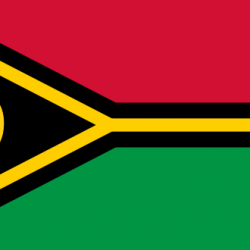
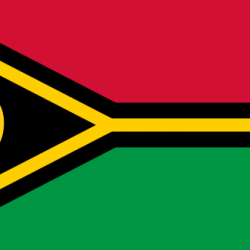
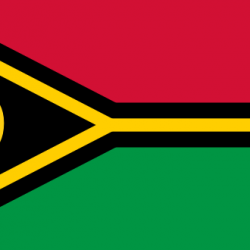
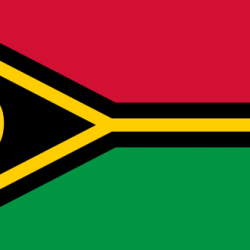
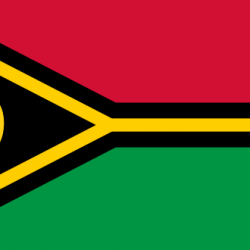
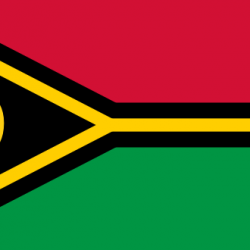
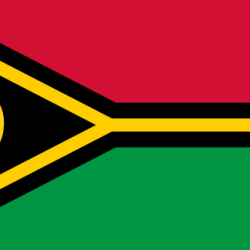
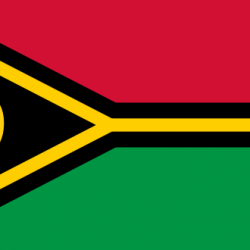
 We will not leak your personal information
We will not leak your personal information